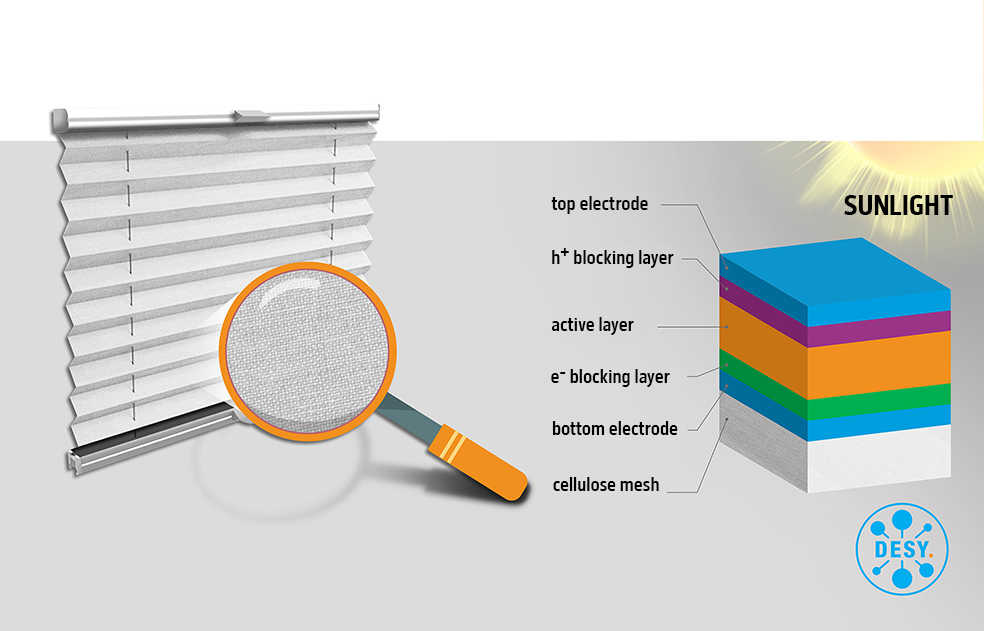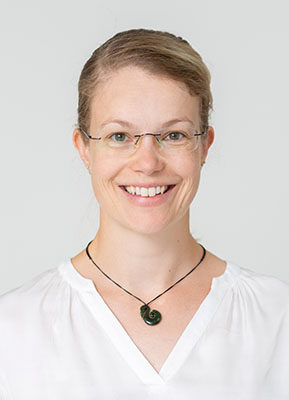Sunny Cellulose
Sunny Cellulose: Sprayed-on Solar Cells for Green Energy
The “Sunny Cellulose” project implemented by DESY in partnership with the start-up CelluXtreme - a spin-off of the Royal Institute of Technology in Stockholm (KTH), aims to spray newly developed polymer solar cells onto a specially developed material made of nano-cellulose fibers. The project, funded by the German Federal Ministry of the Interior, Construction and Home Affairs (BMI), will create new possibilities in green energy.

Development of Organic Solar Cells
Organic solar cells are a high-tech alternative to conventional solar panels made of silicon. These solar cells have many advantages: they are light, flexible, and the production phase is inexpensive – they can be applied to different surfaces and even be printed on inkjet printers. Correspondingly, the organic solar cells developed in the Sunny Cellulose project come forward with their industry-compatible fabrication method: they will be deposited by spraying, which enables an easier scale-up.
The Sunny Cellulose project incorporates an innovative wood-based material called nanocellulose in the electrodes of the organic solar cells for sustainability. As the research for the choice and evaluation of the functional layers in the solar cells continues. The first utilization of the project will use nature-based ultra-strong nanofibers to produce a fiber-resin-composite as the underlying cellulose mesh and form it into a sunshade that also produces electricity. This novel high-tech blind will be used in the headquarters of the Federal Association of German Garden Friends (BDG), a partner of the Sunny Cellulose project. At one pont it will be possible to spray the “Sunny Cellulose” solar cells on various surfaces such as rooftops or walls, or even sails. This will be a green step in building a sustainable, resource-saving and cost-efficient future.
The cellulose mesh that serves as the carrier material on which the electrical power generating polymers are embedded, can replace the place of plastic films that were previously used as a carrier material for these polymers. Further research will make it possible to use nanocellulose fibers as a plastic alternative in many areas like vehicles, furniture or packaging. Even applications in biomedicine can be envisaged, as cellulose is not rejected by the body. Other related projects to Sunny Cellulose include the recycling of these components and in the future, PETRA IV is to help produce even more sustainable versions of the organic polymer solar cells.


More information about SoftWert
Would you like to find out more about the Sunny Cellulose technology development? Our contact person Dr. Nadja Kölpin will be happy to help you!

